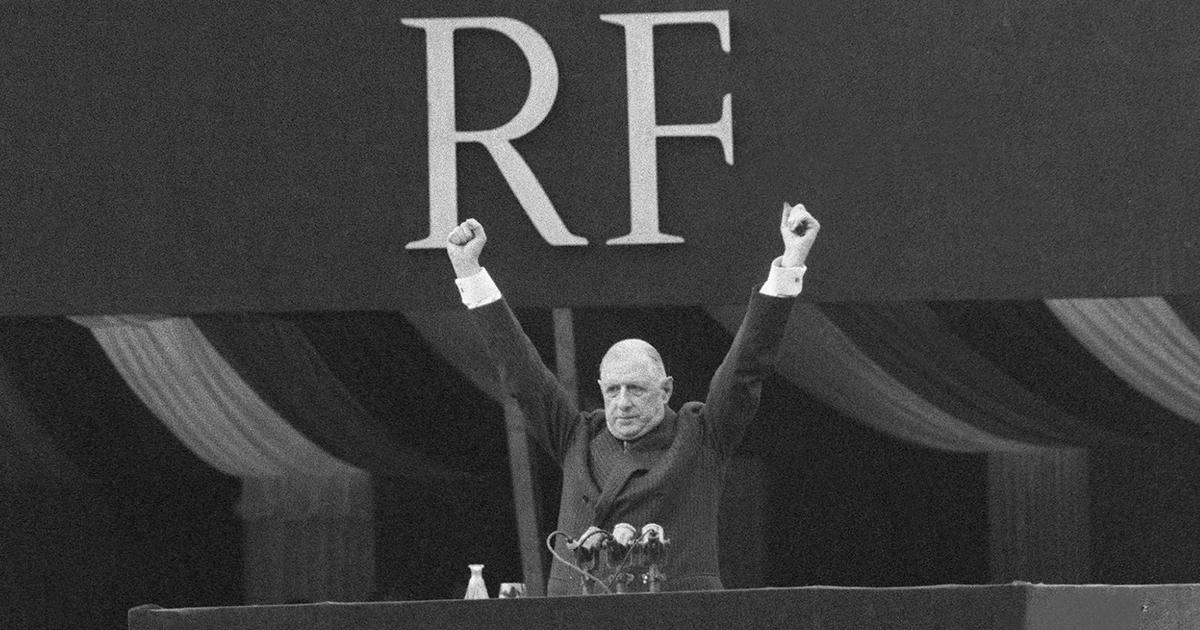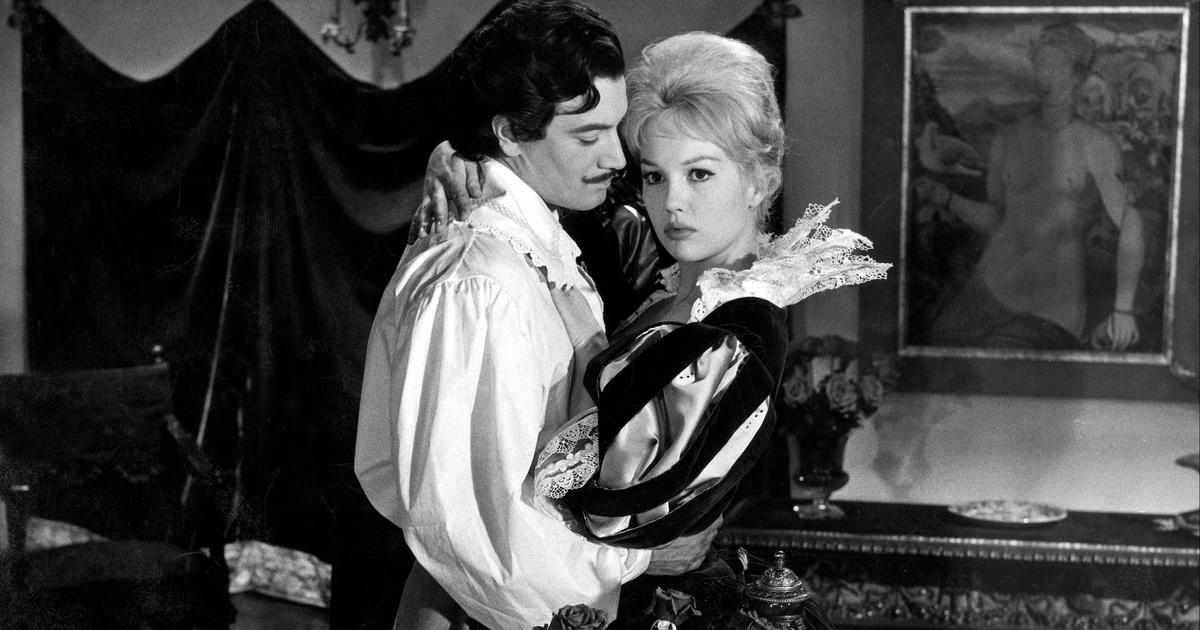Olivier Dard is a professor of contemporary history at the Sorbonne. A specialist in political history, he notably co-edited
The Dictionary of Conservatism (
Cerf, 2017),
The Dictionary of Populisms (
Cerf, 2019) and
The Dictionary of Progressivism (
Cerf, 2022).
To discover
Find all the results of the legislative elections
LE FIGARO. - It has been said for some time now that France has moved to the right, that the conservative camp has won the battle of ideas. However, when we look at the results of the legislative elections, the right appears to be the big loser. How to explain it?
Olivier Dard. –
I wonder if we can seriously consider that the conservative camp has won the battle of ideas.
It is something that one reads, that one hears;
for my part, I am quite reserved.
What seems fair to me is that in fact, for a decade, starting with the Manif pour tous, a certain number of conservative themes have been put on the agenda, and the term conservative itself has been more used or even claimed.
This is why in 2017, with Frédéric Rouvillois and Christophe Boutin, we published a
Dictionary of conservatism
.
In 2017, the candidacy of François Fillon was supported by a number of conservative currents, and conservatism therefore seemed to have a bit of the wind in its sails.
The rest, we know.
Since then, this conservatism has given rise to reflections and trials.
But, even if it is much more established than a decade ago, I will not go so far as to say that the conservative camp has won the battle of ideas.
The result of the right in the legislative elections is therefore logical, but it is not only the question of conservatism that comes into play. The rights appear to be the big losers because they are divided: when we add the three components, LR , Reconquest and the RN - which is a figment of the mind - their score is above that of the Nupes.
If the right loses, it is because it suffers from very serious deficits.
First of all, it has a lack of incarnation in the person of a leader: by comparison with LREM, but also the Nupes under the aegis of Jean-Luc Mélenchon, it is obvious that on the right no leader imposes himself. .
There are several who claim this posture but at LR we even wonder who speaks on behalf of the party.
This is a very different situation from what
we knew Nicolas Sarkozy, who embodied the UMP.
There are also a number of divisions on the right;
we can clearly see that the leaders of these three components – LR, RN and Reconquest – do not speak to each other, even fight each other.
Éric Zemmour and Marine Le Pen did not even agree for the legislative elections.
As for LR, the leaders of the party have not the slightest intention of starting a dialogue;
they have been calling since Monday, as does Gérard Larcher, to vote for the candidates of Ensemble.
As for LR, the leaders of the party have not the slightest intention of starting a dialogue;
they have been calling since Monday, as does Gérard Larcher, to vote for the candidates of Ensemble.
As for LR, the leaders of the party have not the slightest intention of starting a dialogue;
they have been calling since Monday, as does Gérard Larcher, to vote for the candidates of Ensemble.
Within LR, there remains a conservative sensibility, symbolized in particular by François-Xavier Bellamy, but it was noted during the European campaign that he had not been supported by his entire party. .
Olivier Dart
What differences do you make between the conservative tendencies embodied by LR, the RN and Reconquête? Do they have the same ideological and historical roots?
I doubt that the National Rally, especially deprived of Marion Maréchal, can be considered a conservative movement.
Marine Le Pen does not use this term conservatism, and she is much more committed to a populist logic and to a logic of "bloc against bloc" (popular bloc against elite bloc), as identified by Jérôme Sainte -Married.
This corresponds to the sociology of the vote of the National Rally which is different, given the popular origins of the voters, from those of Reconquête and LR.
LR and Reconquête would be more marked by conservative tendencies.
Éric Zemmour has taken a fairly clear position against progressivism and, from this point of view, the opposition to progressivism can fuel a certain number of references to conservatism, to the notions of tradition, heritage, rootedness, etc.
In this field, he competes directly with LR.
But, within LR, where is the place of conservatism?
I come back once again to the Manif pour tous, which is a moment whose importance historians will no doubt reassess over time.
This movement sparked the birth of Common Sense, which then joined LR.
Common sense, at the time of François Fillon's campaign, occupied a certain place within LR.
Today, this line has lost many of its positions within the party,
and certain figures went to Reconquête, such as Laurence Trochu, who did not draw an electoral success from it last Sunday.
Within LR, there remains a conservative sensibility, symbolized in particular by François-Xavier Bellamy, but it was noted during the European campaign that he had not been supported by his entire party. .
It must be said that the candidate for the presidency of the Republic of LR, Valérie Pécresse, considers herself to be the embodiment of a progressive right.
he had not been supported by his entire party.
It must be said that the candidate for the presidency of the Republic of LR, Valérie Pécresse, considers herself to be the embodiment of a progressive right.
he had not been supported by his entire party.
It must be said that the candidate for the presidency of the Republic of LR, Valérie Pécresse, considers herself to be the embodiment of a progressive right.
Read alsoPhilippe d'Iribarne: "At the roots of the dislocation of the rights"
Are we to understand that, amputated from its Orléanist side, when it is no longer the only one to defend the economic interests of the upper classes, the right no longer attracts?
It has effectively lost support in this segment of the electorate that you call the Orléanist side, in reference to René Rémond's famous trilogy.
Three elements characterize this side: liberalism, Europeanism – the defense of the European Union -, and the agreement on a certain number of societal reforms.
Valérie Pécresse was in her time a supporter of the Manif pour tous, unlike Marine Le Pen, but today this is no longer the case.
Europeanism, liberalism and societal reforms are all markers that can also be found on the side of La République en Marche.
In addition, since 2017, a number of LR leaders have left the party with arms and baggage to join LREM and participate in the Philippe and Castex governments, both from LR.
So voters of this sensitivity of LR find in these governments ideas that are dear to them, and for which they are quite ready to mobilize at the ballot box.
If we add to that the promise of no tax increase, they are content with this vision of politics, focused on the economy and management.
From this point of view, we are far from a conservative project that highlights a whole series of more political, existential themes, as with Zemmour, linked to rootedness, immigration, etc.
they are satisfied with this vision of politics, turned towards the economy and management.
From this point of view, we are far from a conservative project that highlights a whole series of more political, existential themes, as with Zemmour, linked to rootedness, immigration, etc.
they are satisfied with this vision of politics, turned towards the economy and management.
From this point of view, we are far from a conservative project that highlights a whole series of more political, existential themes, as with Zemmour, linked to rootedness, immigration, etc.
The populist current is much better able to channel voters who want to express a protest vote, which is now lasting and deeply rooted.
Olivier Dart
Is it also that conservatism, promising no "progress", does not carry a unifying political project - at least in France - and only manages to catalyze a vote of discontent, which easily turns into abstention? to the legislative?
Conservatism is not necessarily hostile to progress, but conservatism views it with caution and reserve;
it does not promise bright tomorrows.
From this point of view, conservatism is poorly perceived, in particular by elites and voters belonging to privileged social classes, executive circles, etc., who have made movement and performance the alpha and the omega of their way of life.
A conservative approach does not hold a desirable future for these people.
Is conservatism able to catalyze a vote of discontent?
In my opinion, not really, or at least not a broad vote of discontent, because in this respect it clashes with another current, plastic and difficult to define, the populist current.
Discontent does not necessarily lead to voting for a Conservative candidate;
it is more conducive to voting for a populist-inspired candidate.
Moreover, even if we consider that Éric Zemmour is closest to conservatism, the motivations of his electorate, marked by the issues of immigration and Islam, are not solely of conservative inspiration.
The populist current is much better able to channel voters who want to express a protest vote, which is now lasting and deeply rooted.
You oppose populism and conservatism. Can't we have a conservative populism as we have seen abroad in particular?
I distinguish them without opposing them.
One could imagine a form of alliance between a populist current and a conservative current, but in France, for the moment, mayonnaise has not taken in this direction.
We find the problem of incarnation: who to carry this project?
If, in the United Kingdom, Boris Johnson was not finally put in the minority, it is because within his party, his opponents wondered who could replace him.
It is also a great strength of LREM, of which Emmanuel Macron is the backbone and the locomotive.
If conservatism was able to emerge with the Manif pour tous, it did not find a political translation and an incarnation in a movement and a leader.






/cloudfront-eu-central-1.images.arcpublishing.com/prisa/TP3BD7YNYFDP3JYTJUSHNEPYHQ.jpg)



/cloudfront-eu-central-1.images.arcpublishing.com/prisa/2C5HI6YHNFHDLJSBNWHOIAS2AE.jpeg)



